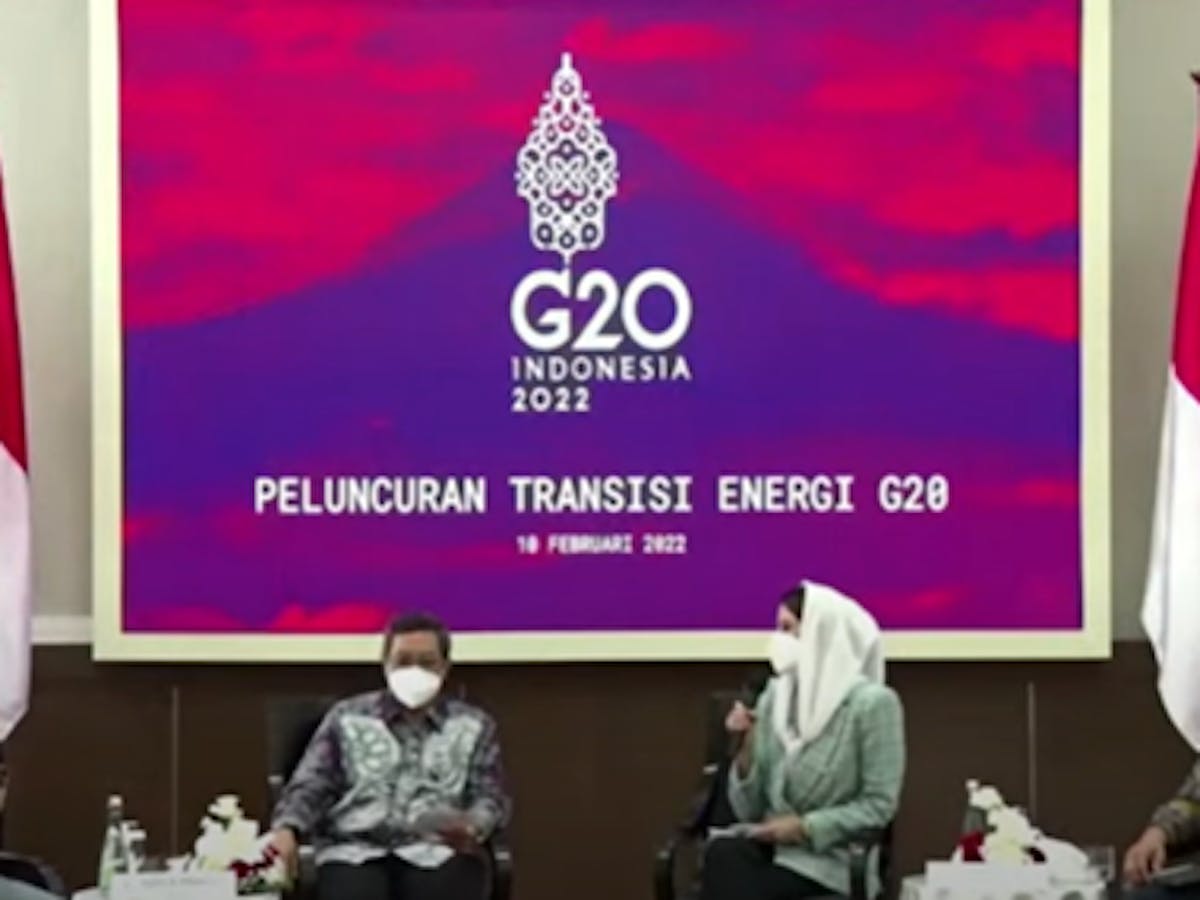Annisa Sekaringtias and Maria Pastukhova
The war in Ukraine has put the global economy to its hardest test since the aftermath of World War II. In this context, the G20 must show leadership with new commitments to boost energy resilience and support vulnerable economies, which will be disproportionately impacted.
As the G20 Energy Transition Working Group meetings commence this week, the focus must be on energy security, access and resilience. Amid the global volatility of fossil fuel supply and price, clean energy and demand-side solutions should be central to any energy resilience strategy. Energy efficiency and distributed renewables play a key role in boosting resilience and energy access.
While this has been acknowledged by the G20 communiques for several years, actual progress has been lacking. In 2018-2020, G20 countries and respective multilateral development banks (MDBs) provided 2.5 times more in international public finance for fossil fuels compared to their support for renewable energy, while since 2020 it is 10 times more its support to energy efficiency. Distributed solar, through isolated grids and standalone systems, accounted for less than 1% of bilateral and multilateral development finance between 2012-2019. On top of insufficient investment in absolute terms, only a fraction goes to emerging markets and developing economies (EMDE). While the region accounts for two-thirds of the global population, it only represents one-fifth of clean energy investment.
Distributed solar, through isolated grids and standalone systems, accounted for less than 1% of bilateral and multilateral development finance between 2012-2019.
2022 is a pivotal year for G20 Energy Ministers. Successful foreign policy leadership can be delivered by focusing on 3 priorities: energy affordability through distributed renewables, increasing support for demand-side efficiency, and closing the financial gap between the OECD and EMDE countries.
Focus 1: Securing energy affordability through distributed energy solutions
The current crisis has exacerbated the need for accessible, affordable energy access. The instability of fossil fuel prices and its multiplier effects on commodity prices will further endanger the welfare of those most vulnerable.
Promoting distributed solar addresses common issues in developing countries: lack of funds, technology, and bankable project for global investments. It helps secure people-centred benefits, with the distributed, ‘small’ infrastructures that the climate-neutral energy transition requires.
As the largest shareholders of International Financial Institutions (IFIs), the G20 must support low-income countries (LICs) with investment costs for distributed solar – currently 2-3 times the 2015 GDP of these LICs to achieve its country-specific potentials. This should be done on top of extending cover to archipelagic countries and rural areas in G20 countries, with limited or low-quality energy access, such as South Africa, Indonesia and India. Japan and Germany are best placed to lead this effort as the largest G20 clean energy financiers.
Focus 2: Boosting financial and technological support for demand-side efficiency
While global coal, oil and gas prices soar, developing countries are struggling with the double challenge of cushioning price shocks and addressing rising energy demand.
Focusing on energy efficiency supports energy security, offering the most cost-effective and rapid actions by mitigating the effects of price volatility and providing cost savings to consumers.
Investing in demand-side responses (DSR) such as smart grids could enable better utilisation of existing generation assets while accommodating the growing supplies of utility-scale and distributed renewables systems.
The G20 should commit to supporting at least a tenfold increase in deploying DSR measures, which calls for 500 GW by 2030 to reach net zero by 2050. This should act as a materialisation of the Rome G20 declaration that acknowledged the need for renewable technologies dissemination. Beyond the above commitment, the G20 need to mandate MDBs to base their energy policy planning on an “Efficiency First” principle.
Focusing on energy efficiency supports energy security, offering the most cost-effective and rapid actions by mitigating the effects of price volatility and providing cost savings to consumers.
Focus 3: Closing the financial disparity between OECD and EMDE countries
The current international public financial flow to clean energy is not yet going to the countries that need it the most. Achieving universal access to energy in the least developed countries by 2030 requires USD 12-40 billion per year, but in 2017 they only received USD 2.7 billion or 12% of the total international finance support.
Accounting for 80% of global energy consumption, the G20 can lead efforts in increasing energy resilience while modernising the energy market to align with the low carbon system. This should begin by closing existing financial disparity and delivering on the required USD 1 trillion support to EMDE countries this decade.
Achieving universal access to energy in the least developed countries by 2030 requires USD 12-40 billion per year, but in 2017 they only received USD 2.7 billion or 12% of the total international finance support.
Indonesia’s G20 should leverage previous G20 legacies, such as the IMF’s Resilience and Sustainability Trust, which specifically looks at support for vulnerable countries. There is also an opportunity to materialise the G7 Finance Ministers and Central Bank Governors Communiqué, which urges MDBs to increase finance for a clean energy transition.

